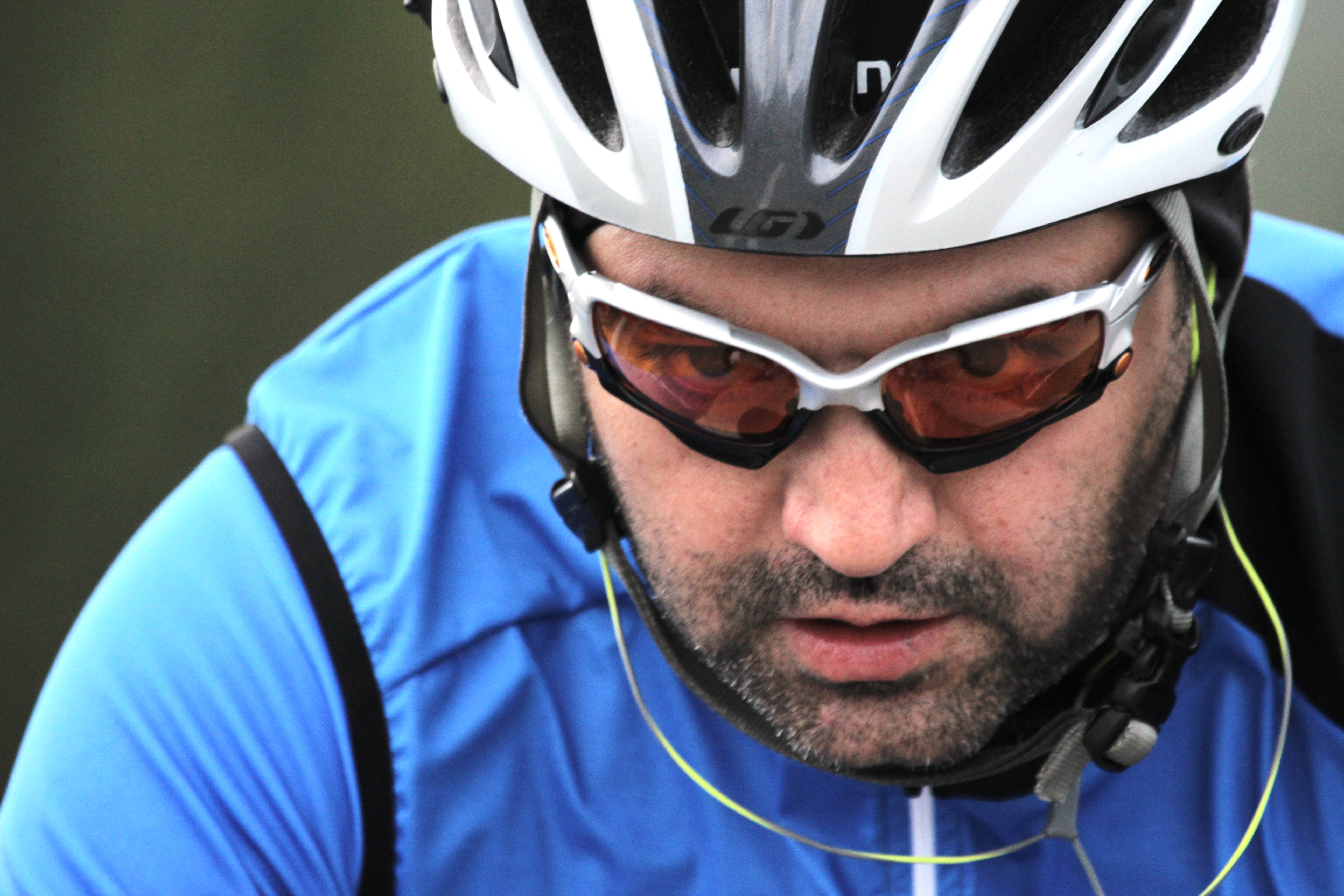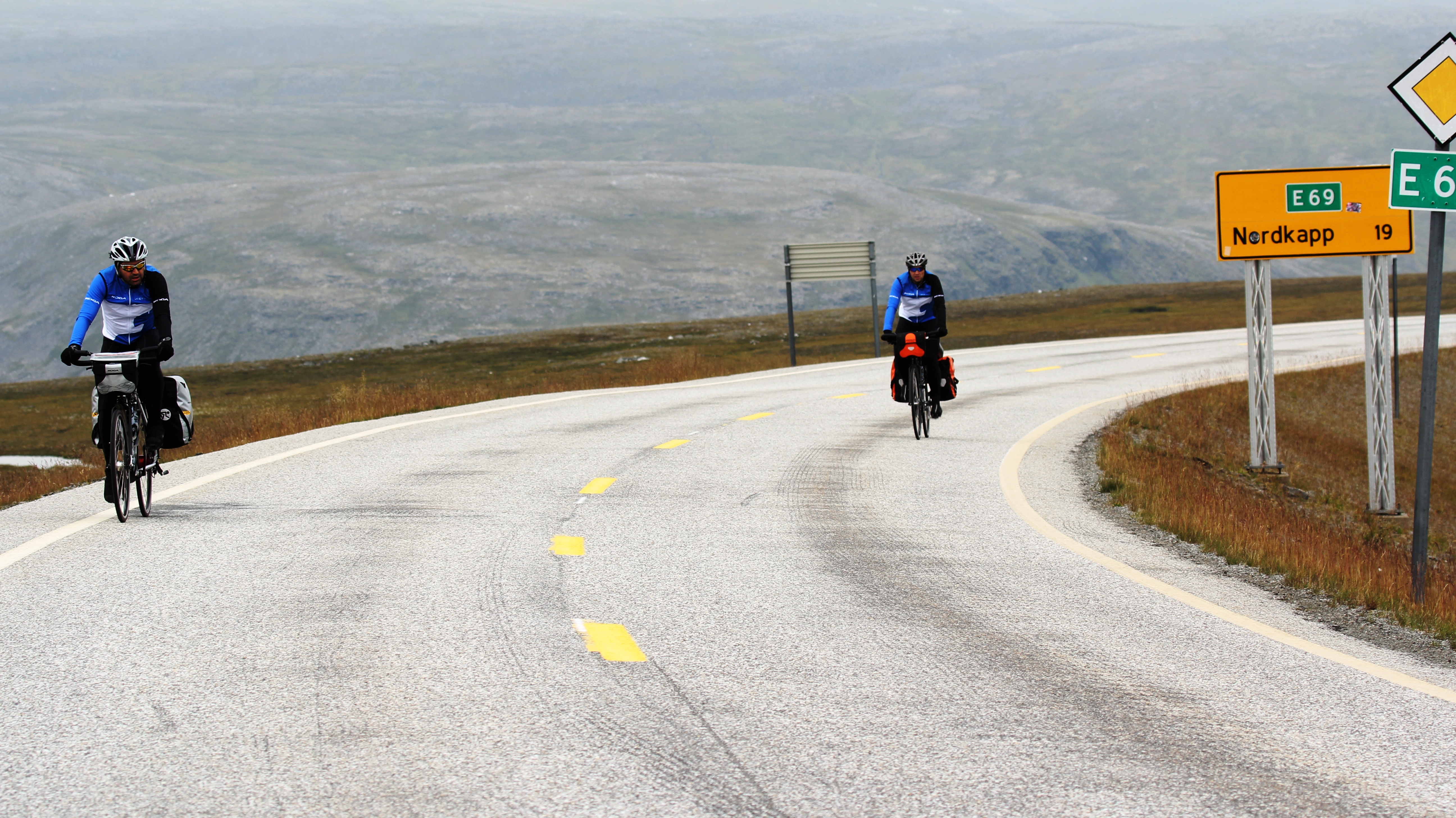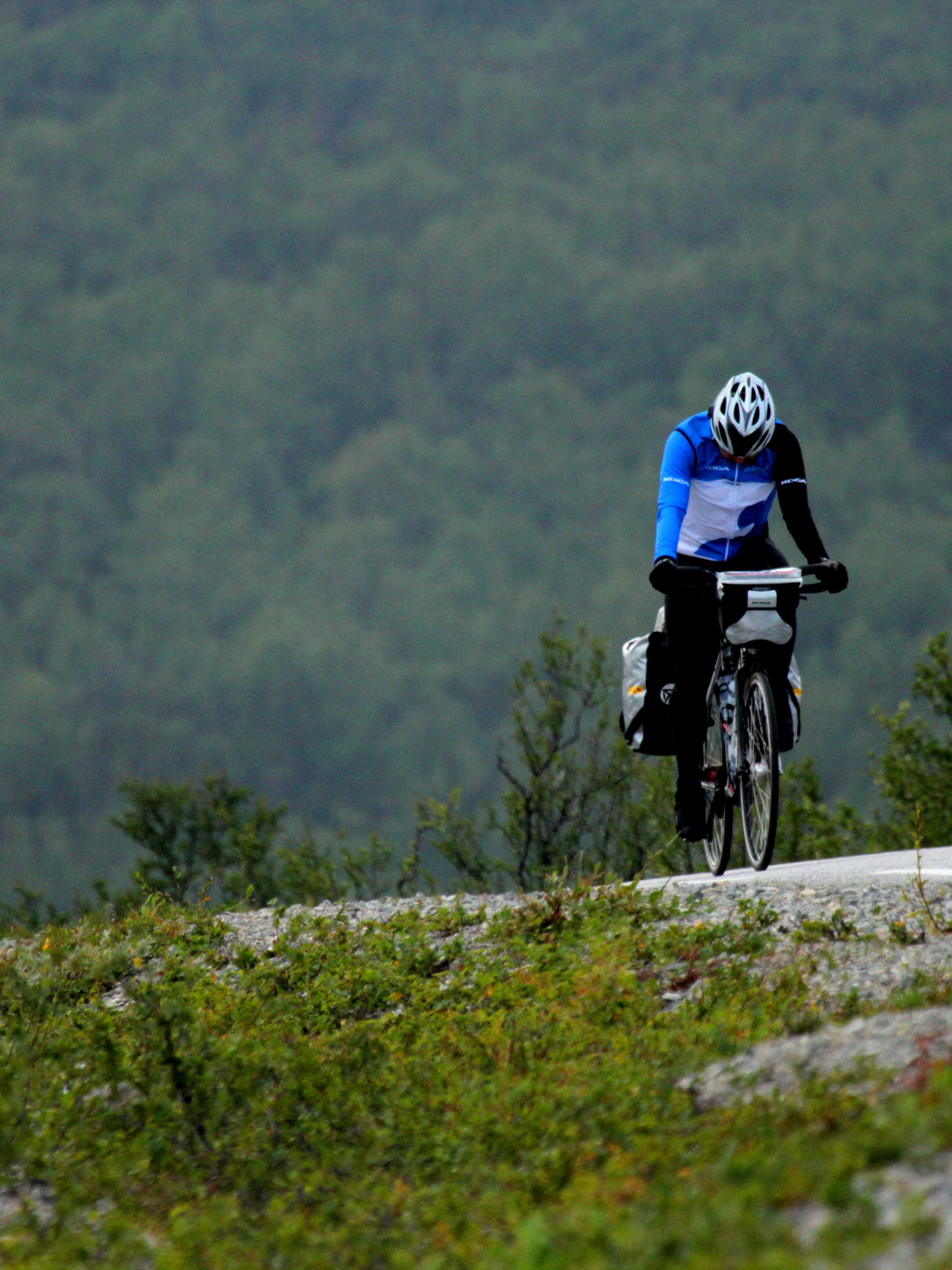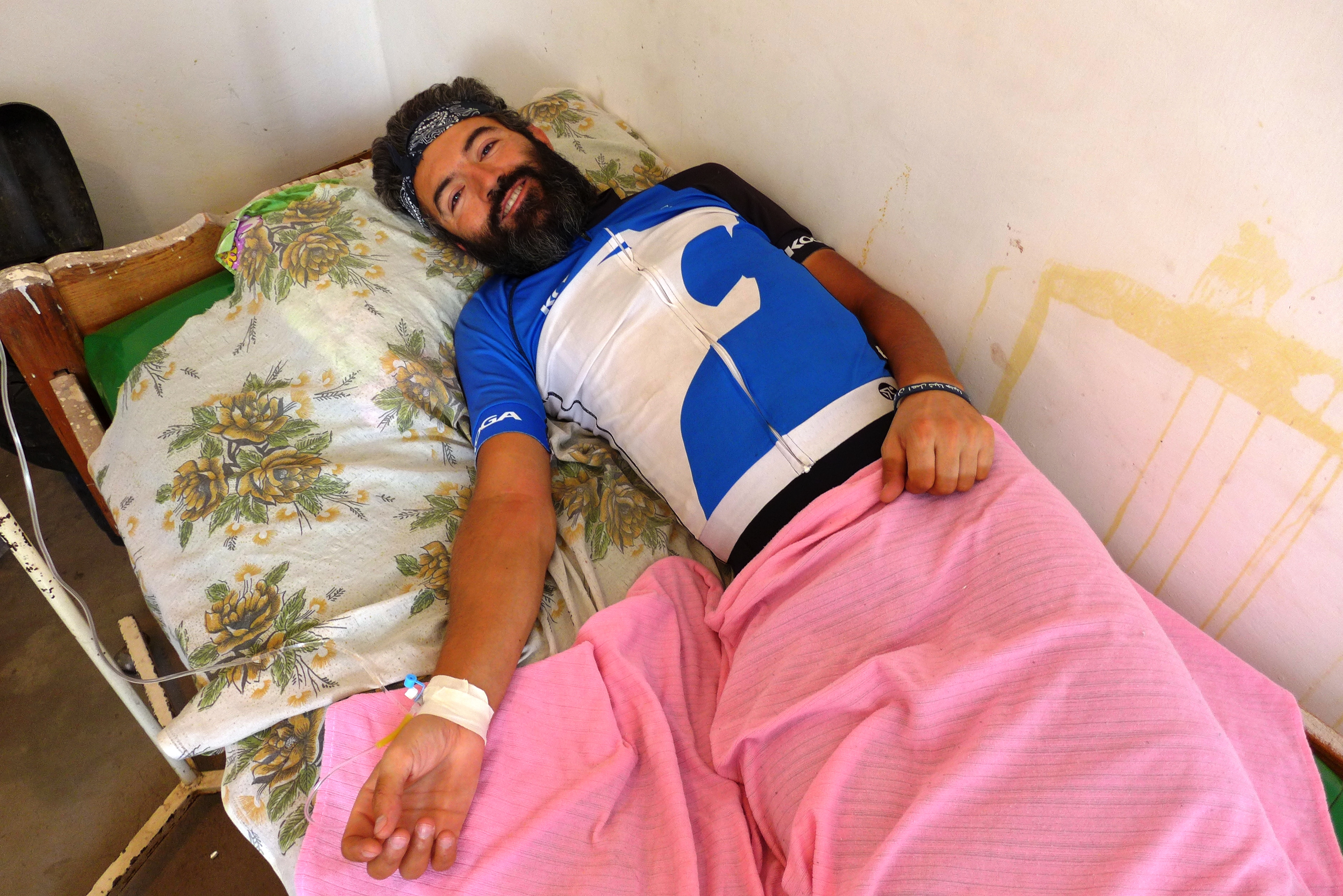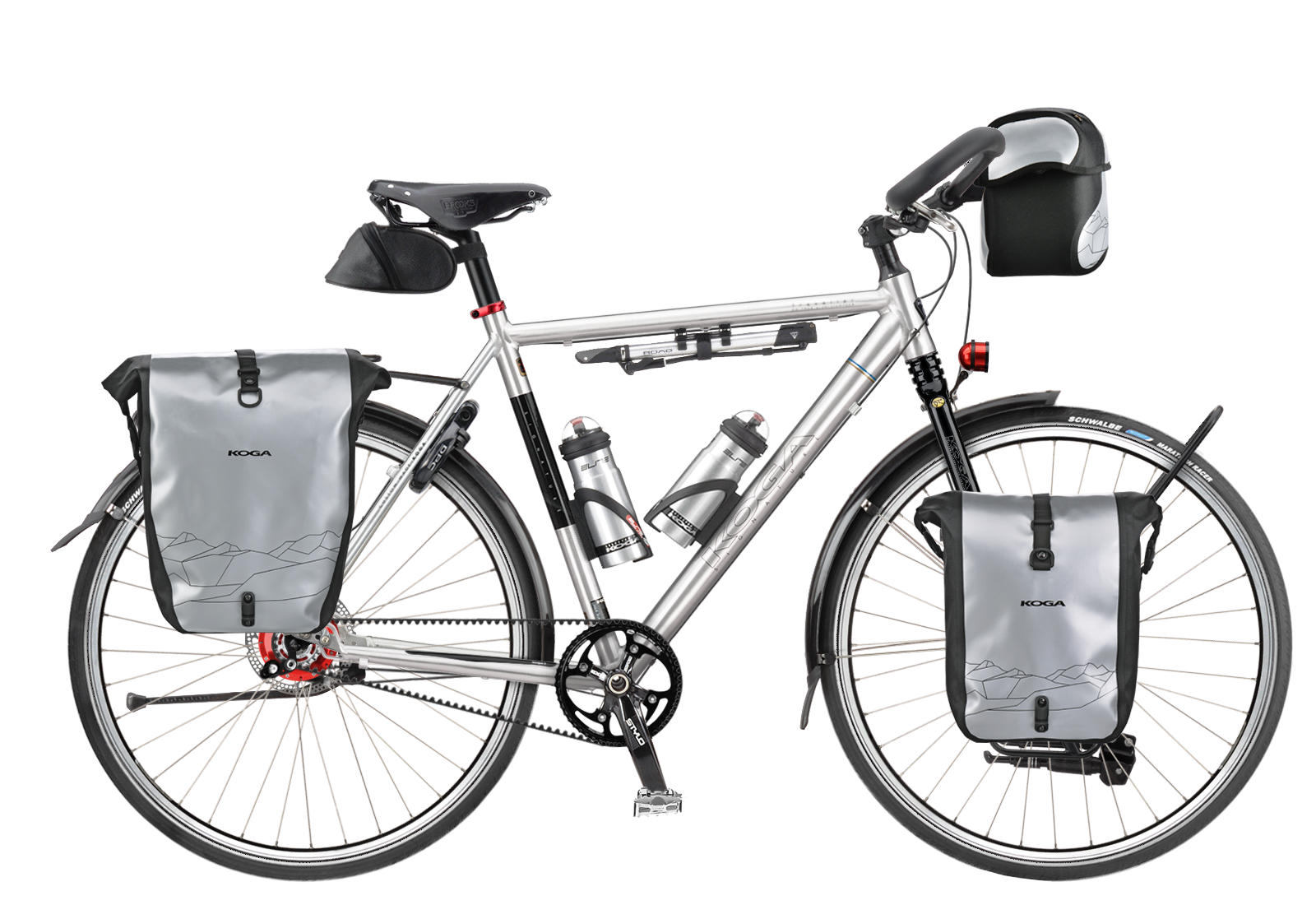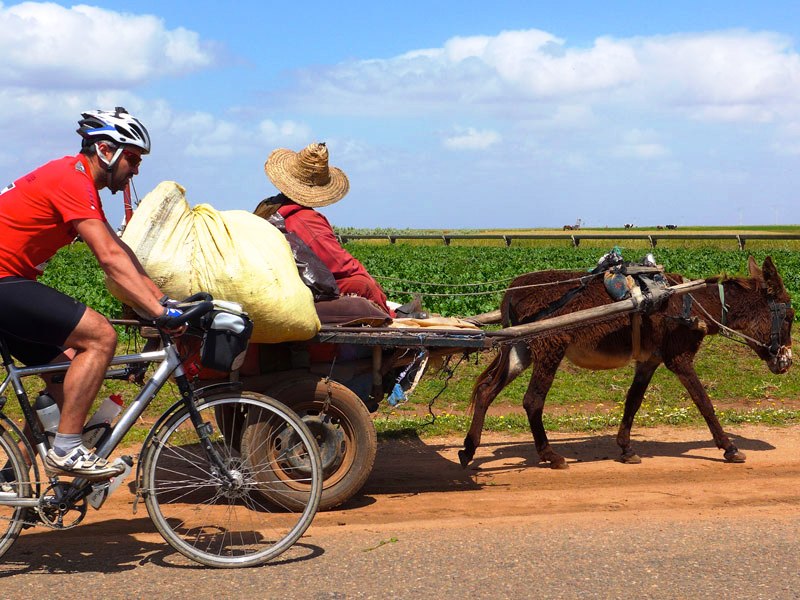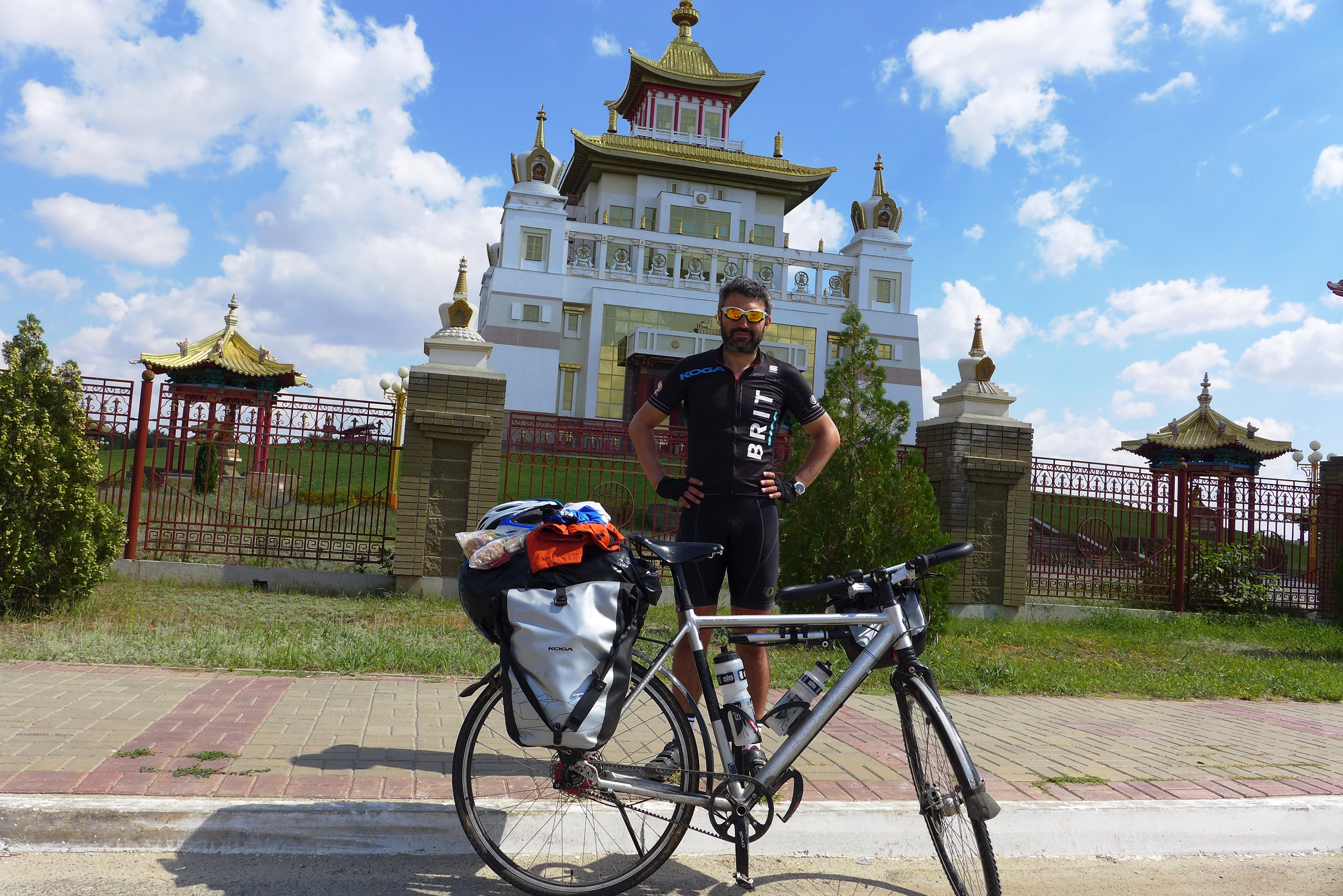Three Continents, 14 Countries, 11,000 Miles, 102 Days: a Q&A with Adventurer Reza Pakravan
Reza Pakravan is one tough cyclist. In 2013, he pedaled 11,000 miles (18,000 km) from the Arctic Circle down the length of the planet to southernmost Africa. The journey took 102 days–approximately 107 miles per day for more than three months. Accompanied by cyclist Steven Pawley,Reza endured incredible hardships: malaria and food poisoning, torrential rains, blistering desert temperatures, dehydration, heat stroke. Why? To raise money for schools in one of Africa’s poorest nations.
The so-called Kapp to Cape ride(named for the starting point in Nordkapp, Norway, and the finish line in Cape Town, South Africa) was dangerous and difficult, but one aspect was painless:Reza’s bike. He rode one of the world’s finest touring and trekking bikes, a Koga Signature World Traveler with a Rohloff internally geared hub and Gates Carbon Drive. Incredibly, he completed the 11,000-mile journey on one belt. No maintenance, cleaning or lubrication required. We caught up with Reza, a 39-year-old former financial analyst from London, for a Q&A about the ride.
Gates: Tell us about yourself and Kapp to Cape.
Reza: I’m an office worker, not a professional cyclist. We planned for two years for this trip, the logistics and financing and training. Steven and I did some bike trips in the Alps and Morocco and England to work out the details.
Gates: What were some of the hardships?
Reza: Whatever could go wrong did. In Scandinavia we had 14 days of nonstop torrential rain. It was miserable. In Russia we had eight tire punctures in 24 hours. The Russian roads are terrible. In Egypt we got caught up in Muslim Brotherhood protests and had to have police escorts. In Ethiopia I got food poisoning. Steven got food poisoning, too, and we both lost lots of weight. In Kenya we cycled on roads of very sharp volcanic gravel. It was hard just to keep the bikes upright and balanced while carrying 30 kilograms (66 pounds) of gear.
Gates: You had to be hospitalized in Kenya and Tanzania?
Reza: Yes. When we got to Nairobi I was shivering with a high fever. Seventy miles later I couldn’t continue and I collapsed. Steven took me to a hospital, a basic clinic really, where they tested my blood and found I had malaria. It took six days to get out of there. I got out of the hospital bed and we were on the road again a few hours later. In Tanzania we ran out of water in the desert. It was 400 miles of desolation in blistering heat. I got heat stroke and collapsed, and Steven laid me down in the shade. Thankfully someone stopped and rescued us and took us to the hospital.
Gates: What were the high points?
Reza: Finishing was so awesome. I wanted to keep going. The other incredible thing is the strangers who helped us along the way, gave us food, shelter and water. We slept in the home of a Maasai family in Tanzania. They fed us and were incredibly nice. That was a highlight. In Saint Petersburg, Russia, we had no place to sleep and were rescued by some guys who invited us to stay in their house. In Dagestan, a troubled part of Russia that is struggling for independence, I slept in Mosques, which were the only safe places. We mostly slept in tents, with a few guest houses and hotels to get a shower.
Gates: Tell us about your bike.
Reza: I knew I wanted a Koga with a Rohloff and belt drive. I did a lot of research and determined this would be the most hassle-free bike. With the Gates belt drive the most obvious benefit is you don’t need to get your hands oily. Steven was riding a bike with a derailleur and chain and he had to change three chains. Each time he got a puncture he had to hassle with the greasy chain and derailleur. I would just unscrew a nut and fix the puncture and go. The belt was amazing. At the finish of every day I put my bike away while Steven had to clean off the dust and oil his chain.
Gates: Tell us about Azafady.
Reza: Azafady is a nonprofit that raises money for environmental, community and education projects in Madagascar. In 2009 I went to Madagascar to do voluntary work for them. I am a financial analyst, so before choosing Azafady I did lots of research and found they have one of the best ratings for spending money on causes and projects rather than administration. So far I have raised over $110,000 for them, enough for six new schools.
Gates: Have you always loved bicycles?
Reza: I was born in Iran, where I grew up skiing and playing basketball. In university I was a semi-pro basketball player. But at some point I got sick of team sports. A friend introduced me to mountain biking. I loved it and rode every day before work. Then I began traveling by bike and exploring Europe and the UK. I cycled the Annapurna Circuit in Nepal, then in 2011 I set the record for fastest ride across the Sahara, 14 days.
Reza is currently living in San Francisco while writing a book about his adventure. He is also working with a director who is creating a documentary about the ride. Reza is simultaneously trying to reinvent his career to become a full-time adventurer and raise money for Azafady and humanitarian causes. We wish him luck. Regarding the longevity of his Carbon Drive, Gates does not expect every cyclist to get 11,000 miles from one belt. Carbon Drive belts typically last twice as long as a chain, although belt life is widely variable depending on the rider, the environment and proper handling. For more information on Gates Carbon Drive read the new Owner’s Manual. Meantime, stay tuned for news on Reza’s book and documentary, which he expects to come out later this year.
